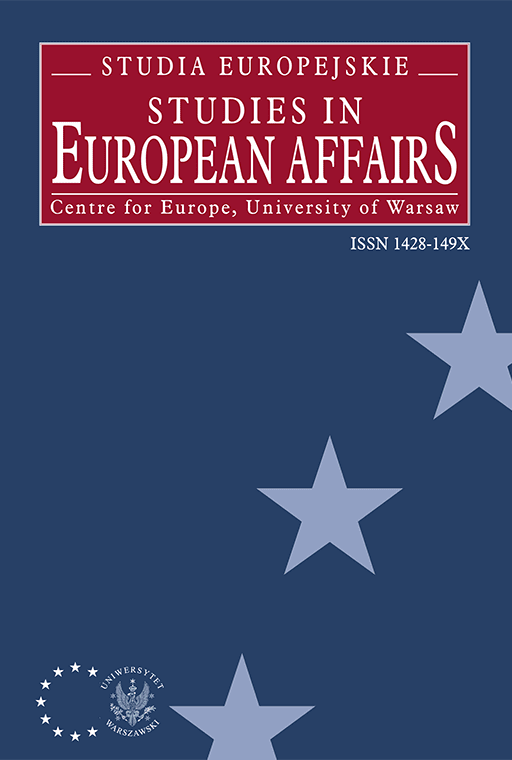
ISSUE: 4/2008
- Volume 48
- Number 4
- 2008
Subscribe NEWSLETTER
Studia Europejskie –
Studies in European Affairs
ISSN: 1428-149X
e-ISSN: 2719-3780
License
Articles published in the journal are under a Creative Commons Attribution – Non Commercial – No Derivatives 4.0 International License
Deficyt demokratyczny w Unii Europejskiej. Defekt czy błogosławieństwo?
The European Union democracy deficit: weakness or strength?
Abstract
All those who disagree with the argument on democratic deficit maintain that democracy in supranational domain (3.0) is going to differ from representative version of democracy (2.0) we know from the level of nationstates to such a degree as the latter one differs from democratic experiments attempted over the past two and a half thousand years (1.0). The EU tends to be perceived by many European observers and commentators of the integration process as “policy without politics”. Such a managerial way of governance has a chance to be free from populism, however it requires alternative ways of legitimacy. This article sums up the key arguments about democracy deficit in the EU and proposes a set of “panacea”. Conclusions are given in the context of main stream of normative theory of democracy with particular attention paid to mechanisms of legitimacy.
Language: Polish
Pages: 9-32
How to Cite:
Harvard
Riedel, R. (2008) "Deficyt demokratyczny w Unii Europejskiej. Defekt czy błogosławieństwo?". Studia Europejskie – Studies in European Affairs, 4/2008, pp. 9-32.